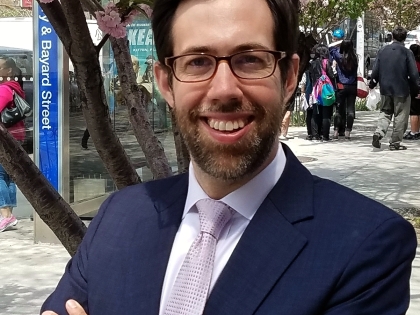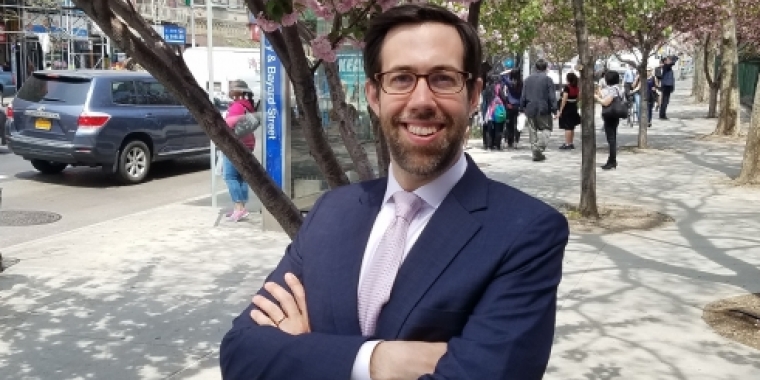
Squadron, Dot Break Ground on Chinatown Ponding Repairs
April 5, 2012
DOT Resurfaces Roads, Fills Ponds Throughout Neighborhood Following Squadron Report
NEW YORK – This morning, State Senator Daniel Squadron joined the NYC Department of Transportation's Manhattan Borough Commissioner Margaret Forgione on Mott Street to officially break ground on work to repair road-curb ponding conditions in Chinatown, following his report that detailed ponding's impact on the local economy and quality of life.
In September, Senator Squadron released his report, “Road-Curb Ponding: A Drain on Chinatown,” and called on DOT to address ponding -- water that accumulates along the sides of roads and curbs and remains days after a rainfall -- while improving agency-community collaboration to prioritize repairs and ensure reporting.
“Six months ago we called on DOT to address ponding, and, today, they've listened to the community and turned my report into real action. This is an example of the power of community collaboration with government," said Senator Squadron. "I will continue to work with the community, DOT, and the City to ensure that ponding is reported, addressed, and eliminated, so that it no longer drains Chinatown's economy and quality of life. Thank you to DOT for so quickly and responsively heeding our calls."
DOT has begun work to mill and resurface Mulberry Street between Worth Street and Bleecker Street, and Baxter Street between Worth Street and Grand Street, in addition to undertaking a "blitz" to repair and fill individual ponds on streets throughout the neighborhood (including along Mott Street).
Last month, Senator Squadron hosted a meeting with Chinatown business and community leaders, DOT, the Department of Environmental Protection, and the Department of Sanitation on how best to prevent, report and address the problem moving forward.
Senator Squadron’s September 2011 report found that:
- 93 unique ponds had not drained within 48 hours;
- 72 percent of survey respondents in Chinatown said that ponding negatively impacts their eating or shopping experience;
- two out of five respondents said that they are less likely to visit the neighborhood because of ponding;
- 62 percent of Chinatown respondents rated the quality of streets as “below average” or "poor”;
- 76 percent of respondents who have observed ponding said that they have not reported the problem, and 58 percent did not know who to contact or that reporting the problem was even an option.
The complete report is available here.
###



